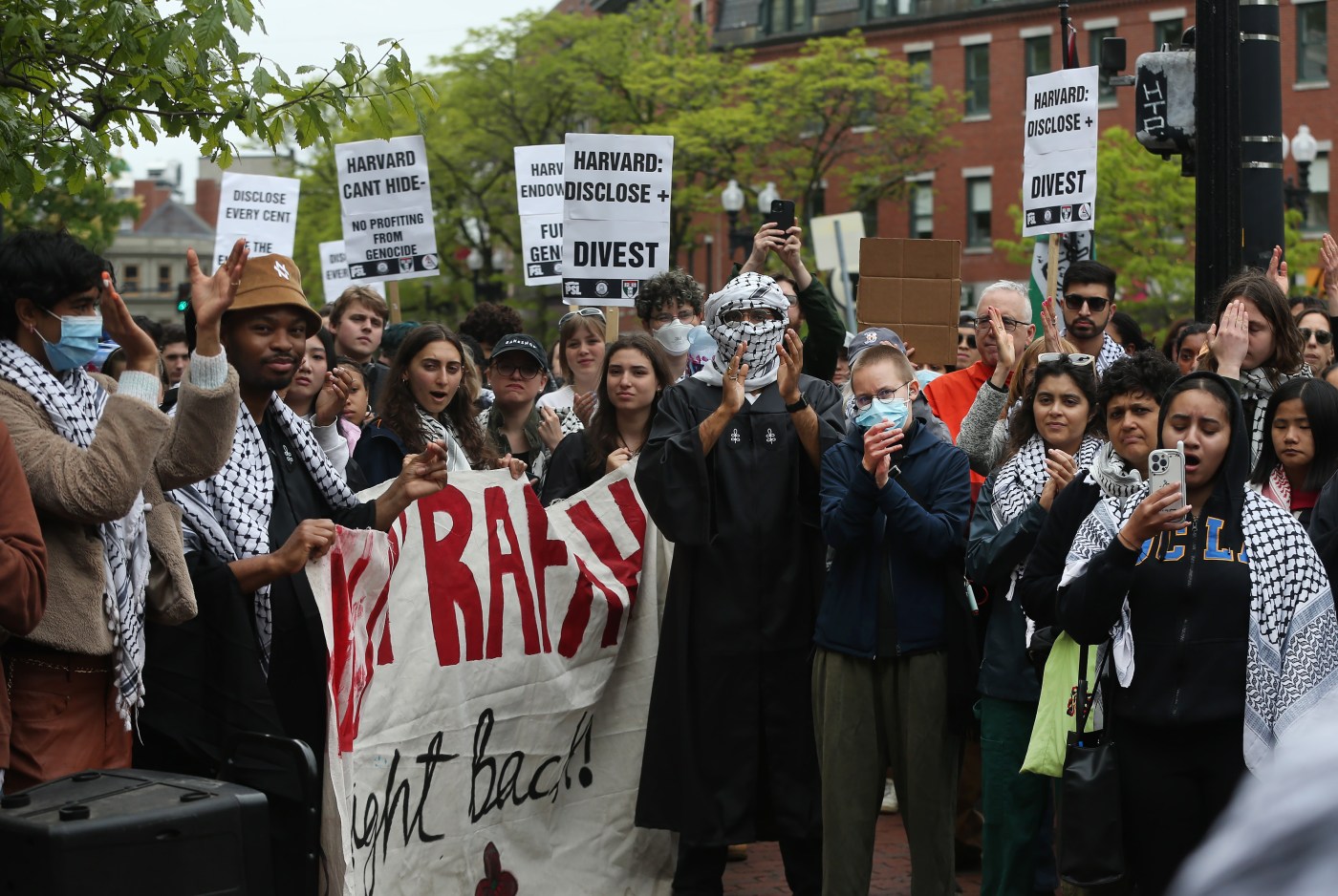
Silverglate: Harvard needs overhaul to restore reputation
During my brief career as a journalist before I decided to become a lawyer, I learned two aphorisms of the trade. One was that dog-bites-man is not news, but man-bites-dog is a story. The second was that some people, institutions, and topics constitute “the gift that keeps on giving.” Harvard University is such a gift.
Ever since Harvard’s former President Claudine Gay was done in by her inelegant testimony before the U. S. House of Representative’s Committee on Education and the Work Force, Harvard has been roiling more than at any time in recent memory. The only prior crisis that comes close was when the enormously talented Lawrence Summers was driven out when he posed, during a speech, a rhetorical question as to why there were so many more women than men in scientific fields of study.
The current contretemps involves the university’s approach to dealing with its students’ anti-Israel, pro-Palestinian, and seemingly even pro-Hamas (and hence pro-terrorist) demonstrations surrounding Commencement Week.
Harvard’s top governing body – The President and Fellows of Harvard College, known colloquially as “The Corporation” – having in just a few years led Harvard from the pinnacle of academia to a veritable laughingstock, has finally, it would seem, discovered the error of its ways. Gay finally was pushed from her post – she survived her inept Congressional testimony, but exceeded the Corporation’s tolerance when her multiple plagiarisms were discovered. The Corporation installed, on a temporary basis while the search for Gay’s successor proceeded, two enormously talented top administrators. Provost Alan Garber was elevated to the post of interim president, and Law School Dean John Manning moved into the provost’s office.
Garber and Manning faced their first major challenge with Commencement looming. Harvard Yard, the scene of the event, was littered with tents erected by students protesting Israel. (One wonders how such a protest could, realistically, affect American policy, much less Israeli policy, but let’s leave this aside for the moment). Garber personally went to the encampment — he did not send a representative – and negotiated its termination. He promised that he would use his considerable influence to see to it that leniency would prevail in any disciplinary proceeding, and that seniors would be able to attend Commencement.
But as might have been expected by anyone (including yours truly) who has dealt with Harvard’s Administrative Board, the university’s disciplinary body – Garber was not accorded the respect his and Manning’s positions and reputations should have commanded. The Ad Board is proceeding against the students. After spending a professional career dealing with the Harvard disciplinary bureaucracy, this comes as no surprise.
What is needed to restore the nation’s oldest, wealthiest and, until recently most prestigious university to its high standing, is a massive revamping. For one thing, its bureaucratic army, now outnumbering its faculty by an estimated two-to-one, should be vastly trimmed. Not only do these administrators account for a large chunk of Harvard’s outrageous $80,000-plus annual tuition and fees, but they are counter-productive when they insist on inflicting unwise student punishment (i.e., bad judgment).
Two recent developments offer some hope.
One is the formation by two faculty members – Steven Pinker and Bertha Madras – of the 70-memmber Faculty Council on Academic Freedom.
Another is Garber’s (with Manning at his side) appointment of a faculty committee to examine whether Harvard should adopt “the Chicago Principles” – an approach pioneered by the University of Chicago that posits institutional neutrality on political and ideological issues. Under these principles, it would do students no good to demonstrate for any political position because there would be nothing that the administration could do since neutrality would have been adopted by the unelected, self-perpetuating Harvard Corporation.
And, speaking of the Harvard Corporation, its manifest malfeasance has been largely responsible for Harvard’s current predicament. Since its unelected members serve two six-year terms and are then replaced by the remaining members, there is no way to dislodge them prematurely nor even avoid the fact that they will self-replicate. Likely the only pressure that could be exerted on the Corporation to remove the “interim” from Garber’s and Manning’s titles, thus setting Harvard on a more productive path, would be for faculty members, alumni, and donors (individuals, including alumni, and foundations) to be loud and clear. One thing at Harvard likely to remain unchanged is that money speaks loudly.
Harvey Silverglate is a criminal defense and civil liberties lawyer, a 1967 graduate of Harvard Law School, and co-author of “The Shadow University: The Betrayal of Liberty on America’s Campuses,” and the co-founder and current Board member of The Foundation for Individual Rights and Expression (www.thefire.org).

